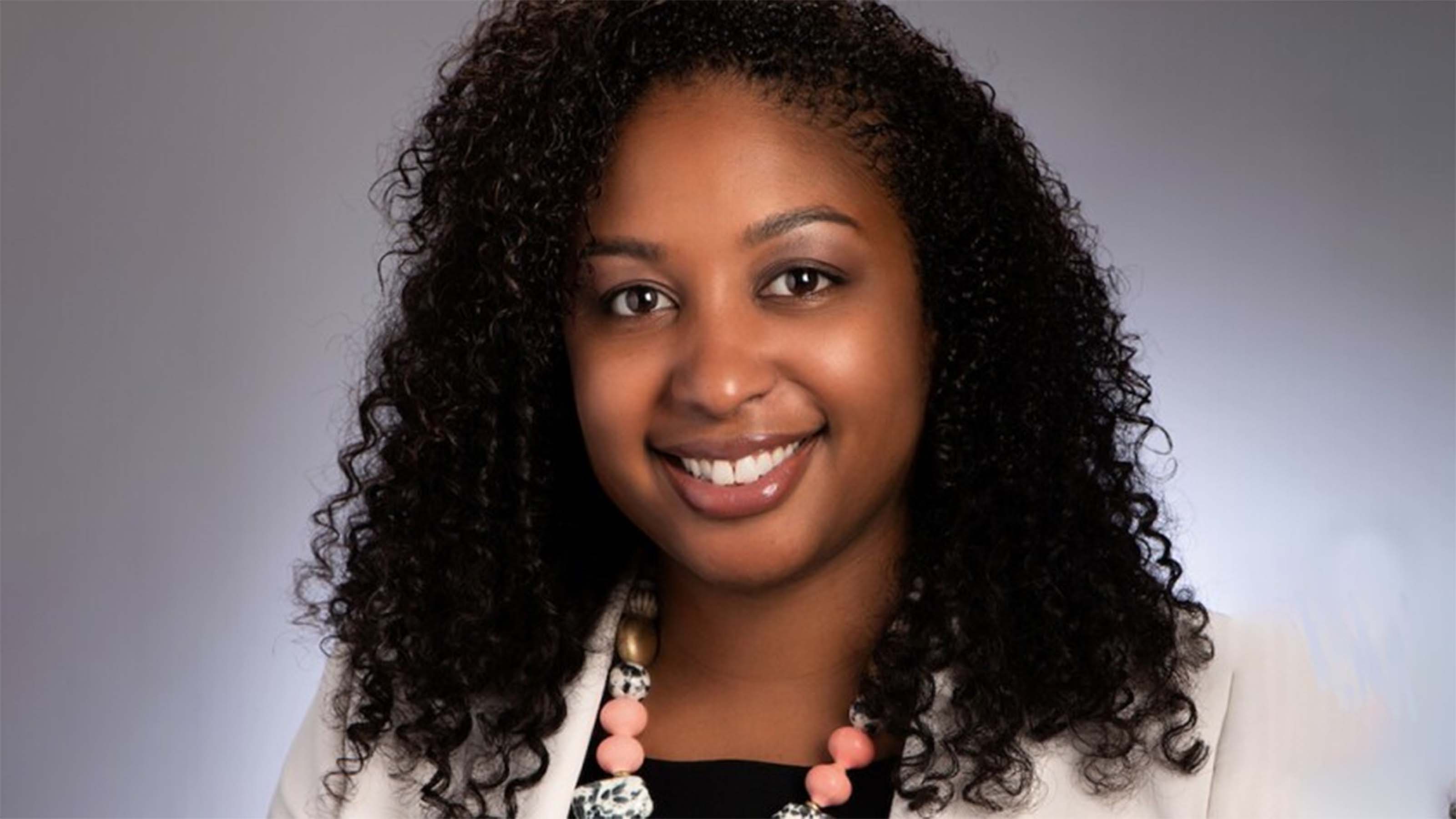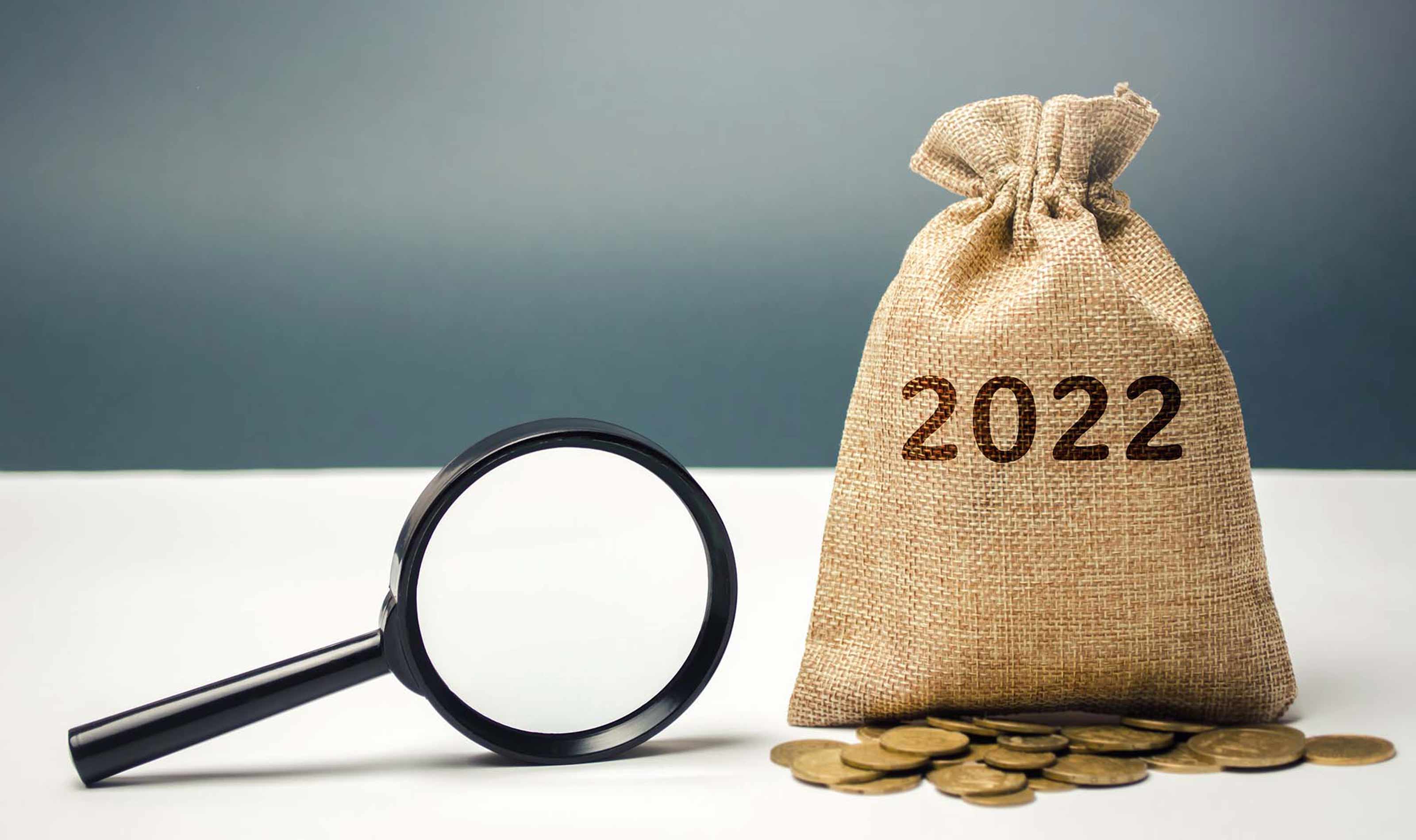Where the Stock Market Is Headed Now
Kiplinger's executive editor Anne Smith tells investors what to expect in the second half of 2019. Also, show hosts Sandy Block and Ryan Ermey talk movie tickets and student loans in a new game of Deal or No Deal.

Profit and prosper with the best of Kiplinger's advice on investing, taxes, retirement, personal finance and much more. Delivered daily. Enter your email in the box and click Sign Me Up.
You are now subscribed
Your newsletter sign-up was successful
Want to add more newsletters?

Delivered daily
Kiplinger Today
Profit and prosper with the best of Kiplinger's advice on investing, taxes, retirement, personal finance and much more delivered daily. Smart money moves start here.

Sent five days a week
Kiplinger A Step Ahead
Get practical help to make better financial decisions in your everyday life, from spending to savings on top deals.

Delivered daily
Kiplinger Closing Bell
Get today's biggest financial and investing headlines delivered to your inbox every day the U.S. stock market is open.

Sent twice a week
Kiplinger Adviser Intel
Financial pros across the country share best practices and fresh tactics to preserve and grow your wealth.

Delivered weekly
Kiplinger Tax Tips
Trim your federal and state tax bills with practical tax-planning and tax-cutting strategies.

Sent twice a week
Kiplinger Retirement Tips
Your twice-a-week guide to planning and enjoying a financially secure and richly rewarding retirement

Sent bimonthly.
Kiplinger Adviser Angle
Insights for advisers, wealth managers and other financial professionals.

Sent twice a week
Kiplinger Investing Weekly
Your twice-a-week roundup of promising stocks, funds, companies and industries you should consider, ones you should avoid, and why.

Sent weekly for six weeks
Kiplinger Invest for Retirement
Your step-by-step six-part series on how to invest for retirement, from devising a successful strategy to exactly which investments to choose.
Ryan Ermey: Welcome to Your Money's Worth. I'm Kiplinger's associate editor Ryan Ermey, joined as always by senior editor Sandy Block. Sandy, how are you?
- Episode Length: 00:31:48
- Links and resources mentioned in this episode
- SUBSCRIBE: Apple Google Play Spotify Overcast RSS
Sandy Block: I'm good, Ryan. How are you?
Ryan Ermey: Good and busy. We're both, I think, kind of running around and on the road this week so we're recording in a fleeting moment that we're both together. It's a Father's Day special.
From just $107.88 $24.99 for Kiplinger Personal Finance
Become a smarter, better informed investor. Subscribe from just $107.88 $24.99, plus get up to 4 Special Issues

Sign up for Kiplinger’s Free Newsletters
Profit and prosper with the best of expert advice on investing, taxes, retirement, personal finance and more - straight to your e-mail.
Profit and prosper with the best of expert advice - straight to your e-mail.
Sandy Block: Go, Dad.
Ryan Ermey: In an effort to mix things up a little bit, loyal listeners to the show will remember that my parents have gotten a little upset that I'm continuously mentioning them on the show even though I've never really said anything embarrassing about them, or I hadn't up to a point. And then in order to teach them a lesson, I mentioned casually that my father cheats on his taxes.
Sandy Block: Which is not true.
Ryan Ermey: Which is not true. But in an effort to let my parents tell their side of the story, we're going to do a special Father's Day segment here. I talked with my dad about some very important personal finance, parenting-related issues. So listen in.
Ryan Ermey: Alright. We are here and on the phone is someone I actually talk on the phone with regularly and that is my father Dave Ermey. Dad, how you doing?
Dave Ermey: I'm doing great, son, how are you?
Ryan Ermey: Not too bad. You and mom have indicated to me that you're not particularly pleased with how much I talk out of school about the two of you and our family on the podcast. Is that true?
Dave Ermey: Well, we've certainly noted that you've had plenty of conversation about us, I think your mother more than me. But it's great to get a chance to reply. Rebuttal's always good.
Ryan Ermey: Right. The theme here is I have said a couple things about you folks on the podcast, so we wanted to give you a chance in honor of Father's Day. Every kid, I think, ropes their parents into buying them dumb or frivolous things that they don't need that we insist that we need and are going to use and get mileage out of, and of course won't. So we thought that the two of us could highlight a few of those instances. I've asked you to prepare your top three, the top three dumbest things, or shall we say, financially dubious things that I made you guys purchase for me as a kid. I have my top three as well. I imagine that there could be some overlap here. But why don't you start with your number three dumbest thing that I made you guys buy.
Dave Ermey: Okay. Number three, and just to be clear, we don't mean to say that all the things that you refer to about us on the podcast are negative-
Ryan Ermey: No.
Dave Ermey: ... cast us in a negative light, by any means.
Dave Ermey: Number three, I think you were about six and you had been talking to us for some time about an instrument that you wanted for Christmas. All six-year-olds should start playing the violin, I think. You promised that you'd play and you'd practice. You wanted to take lessons. So to be perfectly clear, your mother and I didn't fall for that trap. However, your Aunt Marilyn did fall for that one and got you a violin, a very nice violin, albeit she was wiser than we would have been and did make it a one-year lease that you got for-
Ryan Ermey: Yes. It was a rental.
Dave Ermey: ... that you got for Christmas.
Ryan Ermey: But I do remember unboxing it on Christmas morning. Everyone's like, "Ryan, play." Of course it sounded awful.
Dave Ermey: I wasn't one of those people, by the way.
Ryan Ermey: My number three, and I don't know if you're going to remember ... Well, maybe you will. We went to Colonial Williamsburg a couple times when I was a kid. But once we went with a couple other families, a couple other boys my age who all wanted souvenir toy guns. Do you remember the souvenir that I wanted?
Dave Ermey: Yes, I think it's still in my basement. I think it's a musket.
Ryan Ermey: No, sir.
Dave Ermey: No?
Ryan Ermey: I wanted a cane.
Dave Ermey: Ah, well, we have one of those too.
Ryan Ermey: So yes. You bought me a cane that I proceeded to walk around with. I think I thought it could be like one of those canes with a sword in it. I thought it was going to be a Zorro kind of vibe that I was going to be going for. Alas, I didn't get much mileage out of the cane.
Dave Ermey: Yeah, no.
Ryan Ermey: Alright. Number two for you.
Dave Ermey: Number two for me, this is kind of a tossup. But I'll go with number two was in your teenage years you started wearing contact lenses which really is not frivolous or terribly-
Ryan Ermey: No.
Dave Ermey: Actually, Mom very much promotes those to this day for you to wear.
Ryan Ermey: Oh yes.
Dave Ermey: But I thought one that was particularly interesting was that you had to have some blue-tinted contacts, which would go perfectly with your very dark, almost black hair and eyebrows and such. I think that was probably my number two.
Ryan Ermey: Yeah. I think I wanted to look like John Stamos or something. I thought it was going to be quite striking when, in fact, no, I looked ... I remember I used to want to wear them for special occasions.
Dave Ermey: Of course.
Ryan Ermey: I wore them to, I think, a middle school band concert or something I wore them. All my friends, people were just doing ... What happens when you do that and not all the time is that people just double-take at you and go, "Were your eyes always that color?" It's like, "No, this was something I just-"
Dave Ermey: I'm cool tonight.
Ryan Ermey: That's right. Number two for me, and I think this one might crack your list as well. I may be spoiling your number one, was when we were vacationing in Myrtle Beach and we stopped at an outlet mall or something and there was a Sunglass Hut. I wanted as an early birthday present a pair of designer sunglasses.
Dave Ermey: Yeah, absolutely. That would have been my number one. That's one that sprang first to my mind. You know I'm not much of a brand guy, but I think they were Dolce & Gabbana?
Ryan Ermey: Dolce & Gabbana.
Dave Ermey: Yes, Gabbana.
Ryan Ermey: I used to read GQ and Esquire and I thought that I was majorly, majorly hip with those things. Now, of course, they're the kind with the big, fat, inch-wide arms on them.
Dave Ermey: Oh yeah. Metal, if I remember correctly.
Ryan Ermey: They look straight out of 2005, which they are. But they almost look like ladies' sunglasses. I can't possibly wear them anymore. I think I was like, "Oh yeah. It'll be my birthday and Christmas present."
Dave Ermey: Actually it was pretty well-played because, of course, you knew that would never stop your mother from buying you presents anyway. So nicely done in any case.
Ryan Ermey: Like Mom's not going to wrap something up and put it under the tree. That's always a majorly successful play. So in that case, we'll move right on to my number one, which a similar holiday theme. When I was a kid, I'm sure you'll remember that I asked for a dog for Christmas every year when I was a kid. We finally did get one eventually. But before that, I got robot dogs. I got stuffed dogs. I got remote control dogs, each sadder than the last, which obviously I was never going to play with a robot dog. But I think the piece de resistance was, in an effort to hopefully steer Mom because Mom was the obstacle in getting the dog-
Dave Ermey: Pets in general, yeah.
Ryan Ermey: Yeah. So I said, "Okay, if I can't have a dog then let me have a parrot." I had gone to the library and gotten books about parrots and rented videos and looked up all the exotic bird stores in the area. And then I remember you guys calling me into your bedroom one night in the midst of parrot fever and saying, "All right. We're just going to get a dog."
Dave Ermey: But as an adjunct to that story, I'm pretty sure that it started with a visit with the neighbors across the street who had a macaw or a parrot.
Ryan Ermey: Cockatoo, whatever it was.
Dave Ermey: Cockatoo, yeah. In any case, an exotic bird. I think that was the genesis of that entire ploy by you. Again, amazingly effective I have to admit.
Ryan Ermey: Yeah. Well, I knew that Mom-
Dave Ermey: We weren't getting a bird that was going to live 45 years and you were going to be in our house for another six, tops.
Ryan Ermey: I was like, "Mom, they can be a lifetime companion."
Dave Ermey: Yes.
Ryan Ermey: "I'll bring it to my dorm in college."
Dave Ermey: Yeah, another minus. Aye yai yai. Yes, that was a remarkably effective play on your part too.
Ryan Ermey: Yeah. But yeah. I don't think, I wasn't a kid who asked for too many dumb things. I stole one of yours. Was there anything else that made the short list?
Dave Ermey: The short list? Well, there was a drum set-
Ryan Ermey: That's right.
Dave Ermey: ... that almost made the list. But as it turns out, we didn't actually buy that. That was a hand-me-down from another friend.
Ryan Ermey: That's right.
Dave Ermey: Thank goodness for that and also thank goodness you played it about three times.
Ryan Ermey: I did get a couple lessons on that. I think the issue with that was the lessons were all on a little pad kind of thing. I thought I was going to be like Animal from The Muppets from the first lesson.
Dave Ermey: Of course.
Ryan Ermey: Of course, you have to start out on a little rubber pad, and I just wasn't into it.
Dave Ermey: That was my next one. I only had a few. That was a good representative sample though, I think.
Ryan Ermey: Yeah. I mean, your foppish son wanted blue contacts and sunglasses and a cane. I think people are getting a picture of what kind of kid I was.
Dave Ermey: Well, let's not go into the cape story then.
Ryan Ermey: All right. We'll save that one for another podcast. In the meantime, thank you very much for coming on, getting a little bit of your say and that sort of thing. We'll have to have Mom on here soon. She no doubt has a better memory for these things than you do, if you won't take any offense at that.
Dave Ermey: Trust me. We talked before this.
Ryan Ermey: She was consulted heavily?
Dave Ermey: Oh absolutely.
Ryan Ermey: Okay. Well, in the meantime, thank you so much for coming on. I'll see you this weekend for golf.
Dave Ermey: Sounds great. Looking forward to it, son.
Ryan Ermey: We're back and we're here with Kiplinger's executive editor Anne Smith, also my editor in charge of the investing coverage here. We last spoke at the beginning of the year, talking market outlook. So we wanted to check back in. Thank you for coming on, Anne.
Anne Smith: It's my pleasure to be here, Ryan.
Ryan Ermey: The market was humming along this year through April, but things have sort of been up and down recently. Where does the market stand, and how do we think stocks will perform through the rest of the year?
Anne Smith: Well, I'll tell you, the broad market, which we measure by the S&P 500 Index, is down about 4% from the high that it got to on April 30th. Our target for the end of the year is not far actually from where the S&P is trading today, around 2850 or so. We get to that by looking at earnings expectations and applying what we think is the right multiple to that based on our assessment of how much risk investors are willing to take and how much we think they'll bid up prices.
Anne Smith: Now, if we're right, the market will have delivered even going nowhere, going sideways for the rest of the year, the market will have delivered a 14% gain in price. You add in two percentage points of dividends, and that's a 16% return, so not bad.
Ryan Ermey: Certainly not bad for the year, but it sounds like for the rest of the year we're expecting what we call a sideways market. How should investors generally be strategizing for that kind of market?
Anne Smith: Well, when the tide isn't lifting all boats, investors have to be choosy and selective and discerning. That means you tweak your holdings around the edges. You should definitely prepare for volatility. You need to make sure that your investment mix stays where you want it to be. You do that by rebalancing periodically. We've seen from the market lately that it's really important not to get swept away by the news of the day. We've had these very scary down days and they're followed very quickly by these enormous rebounds. So it's just important to stick to your plan.
Ryan Ermey: Well, when we talk about scary news of the day, I think the thing that's on everyone's mind is tariffs. What are the possible ramifications of these US/China trade negotiations? And what do we actually expect to happen?
Anne Smith: For good reason. Trade wars are scary.
Ryan Ermey: It's got war in the name.
Anne Smith: That's the biggest hurdle facing the market. Trade wars have the potential to raise costs for companies and consumers and crimp sales. Almost worse than that, they introduce uncertainty into a company's business plans. That makes CEOs very reluctant to spend on factories, equipment, business expansion, and that's just not good for the economy. With the stakes that high for both the U.S. and China, most experts and economists that I talk to think that we'll come to terms eventually, possibly hearing something as early as the end of this month at the G20 Economic Summit.
Anne Smith: But this is a long process. It's not going to be ... These imbalances didn't build up overnight, and it's not going to be solved overnight. It's going to be a long, drawn-out process. That means volatility at every turn in the negotiations for investors.
Ryan Ermey: The other major news factor that seems to be driving a little bit of volatility in the market, or at least over the past few months, is that the fed seems to have shifted gears majorly. So how might that, how might fed policy affect people's investments?
Anne Smith: That's volatility in the good direction because-
Ryan Ermey: Good.
Anne Smith: With the feds signaling that it's more amenable to not just keeping rates steady and not hiking, but actually cutting, that helps the market by keeping the economic expansion going. Just by the way, this expansion in July will become the longest one ever and we think it'll make it that far. Stocks do very well in a low interest rate, low inflation environment. This activist fed in a pre-election year, I think, is going to make sure that we have that kind of environment.
Ryan Ermey: We talked about tweaking the portfolio around the margins and being strategic about where you're investing. What investments do we think look attractive now?
Anne Smith: Well, like I said, we think the economy will continue to grow, but it's growing more slowly. It's definitely slowing down. So you want the growth-ier parts of the market, stocks that can deliver higher growth. That's tech, always has been. It's a great example. But these days you have to be more discerning than ever. Semi-conductor manufacturers, for instance, they're smack dab in the middle of the trade war. A lot of Internet stocks could be facing increased antitrust scrutiny coming up, and they've been very volatile.
Anne Smith: We like software and tech services stocks, such as Microsoft. Accenture's another good one. That's an IT business consultant. A fund that we like, if you're a fund investor, is Fidelity Select Software and IT Services (FSCSX).
Ryan Ermey: We talked a little bit about healthcare in our last discussion on this. Do we still like healthcare?
Anne Smith: We still like healthcare. We might like it even better. It checks a lot of boxes. It's high-growth, but also defensive because healthcare is not a discretionary expense for people. And as a nation overall, we're not getting any younger. Medical equipment makers, device makers, including Becton Dickinson (BDX), are attractive. Healthcare stocks have been battered by a lot of the political wrangling surrounding drug pricing and proposals for a single payer system. We think change in that area is likely to be incremental and very slow, so many of the stocks are great bargains now.
Anne Smith: Vanguard Health Care (VGHCX) is a good fund to consider. It's a member of the Kiplinger 25, which is the list of our favorites. By the way, I encourage everyone to read about our favorite healthcare stocks and some funds together in the upcoming August issue of Kiplinger's Personal Finance.
Ryan Ermey: Of course when we talk about the market, we're not just talking about stocks. What about bonds?
Anne Smith: Well, if there's anything we've seen recently it's that bonds provide a very important ballast in your portfolio when the stock market is sinking. Bonds have done super well lately when the stock market has been rocky, especially longer-term treasuries. Income investors can look to dividend stocks and real estate investment trusts for income. One we like is Realty Income (O). It's a member of the Kiplinger Dividend 15, which as the name implies is the list of our fave dividend stocks.
Ryan Ermey: We'll link that along with the Kiplinger 25, all of our wonderful investing lists in these show notes. Anne, the last thing, would you have any other reminders for investors as we approach the latter half of the year?
Anne Smith: Well, two, one is don't ignore international stocks. Those markets have been painful and emerging markets will bear the brunt of trade wars if they escalate. But they are extremely cheap now. They've got to be a part of a diversified portfolio. I think we have a story scheduled by an upcoming issue of the magazine on low volatility ways to invest overseas, so be on the lookout for that.
Ryan Ermey: Sure thing.
Anne Smith: The other important thing, and Ryan, you know about this, as the market gets more volatile I would just encourage everyone to stick to their plan, focus less on day-to-day gyrations, and keep your contributions up if you're young. Have a shopping list for down days. If you're close to retirement or in retirement, make sure you're not overweight in stocks. You do that, again, by rebalancing faithfully. That helps you to sell high and buy low. It sort of removes this temptation that everybody has to time the market.
Ryan Ermey: Yeah. Well, I do know about this because I have a story coming out on that very topic in our upcoming August issue. In the meantime, what we've talked about today is a mere fraction of Anne's hugely comprehensive outlook for the market for the rest of the year. That appears in our July issue of the magazine. Be sure to take a look at that. We'll have all of this material posted online in the show notes.
Ryan Ermey: Anne, thank you so much for coming on.
Anne Smith: Again, my pleasure, Ryan.
Ryan Ermey: Before we go, Sandy and I wanted to play another game of Deal or No Deal. Sandy, we are kind of back in that parenting territory here.
Sandy Block: That's right. This is my Deal or No Deal is Parent PLUS loans.
Ryan Ermey: Okay.
Sandy Block: Which a lot of parents, increasingly parents take out to help their kids pay for college.
Ryan Ermey: So are they a deal?
Sandy Block: No. They are not a deal. Here's the problem with Parent PLUS loans. Even though the interest rates will drop slightly for loans issued on or after July 1st, the rate for Parent PLUS loans is slightly above 7%.
Ryan Ermey: That's high.
Sandy Block: That's high. In this environment, that's really high, particularly when you compare to the loans that the students can take out. The federal student loans, the interest rate is about 4.5%, so there's a big spread there. But the reason that Parent PLUS loans are popular, there's two things. One is that there's a limit on the amount of money you can take out in federal student loans per year and over the student's lifetime. A freshman, for example, can only take out 5500 in federal student loans.
Ryan Ermey: Which doesn't go very far in terms of covering tuition.
Sandy Block: Doesn't go very far, right. Parent PLUS loans, you can take out up to the cost of college, and almost everyone qualifies for them. Unless you have a really black mark on your credit record, you can get a Parent PLUS loan. And then the other reason is some parents, perhaps goodheartedly, think they would rather borrow than have their kids borrow. But at such a huge spread in rates, it makes more sense to have your kids borrow as much as they can. You can always help them pay off those loans. But the overall cost is going to be so much less. We did some math in our July issue, which you can look up.
Sandy Block: Over the 10-year payment period, you're talking about a really big difference in the amount in those payments and the amount of interest that you will pay. So have your kids take out the maximum amount of federal student loans they can take out. If they graduate and they are unable to pay them off, you can help them then. And then you might want to explore options. A home equity line of credit, for example, runs about 5.5%. If your credit is really good, even a private loan might have a better deal than a Parent PLUS loan. Because what we're seeing now, you see these stories about people paying off their student loans and they're claiming Social Security. You think, how could they still be paying off their student loans? Well, they're probably paying off their kids' loans.
Ryan Ermey: They're not theirs.
Sandy Block: That's right. They're paying off their kids' loans. So you're jeopardizing your own retirement. The last thing I'll say, and this doesn't help if your kid's already been accepted and you're already in, but if you're considering a school and you discover that federal student loans, financial aid, and available income is not enough, you merely might want to reconsider whether you should send your child to that school versus taking out these high-interest Parent PLUS loans.
Ryan Ermey: This is something that we cover diligently in Kiplinger's magazines are best college values. Our colleague, Kaitlyn Pitsker, is in charge of that and I believe we are slated to have her on the show once those best value college rankings come out. So we'll be able to fill the dear listeners in.
Sandy Block: That's right. Ryan, what's your Deal or No Deal?
Ryan Ermey: I wanted to talk about MoviePass because mine still works, but not the way it used to. But to me, I think it's still a deal. But then I started looking into it and they've changed their terms. It's all very squishy. There's a lot of competitors. So I propose that you and I actually dedicate a segment on an oncoming show to exploring all of the different ways that you can go about saving on movies if you go to the movies quite a lot. So that we'll do down the line.
Ryan Ermey: In the meantime, I combed my backlog of calendar fodder. We can remind everyone. I used to write the financial calendar that appears in the front of every issue-
Sandy Block: And you were the best calendar writer we've ever had.
Ryan Ermey: ... of Kiplinger's magazine. Thank you very much. It's a dubious honor, but I'll take it nonetheless.
Ryan Ermey: One of the things that I used to like to recommend in the summer, which is a really good deal, offered just about everywhere that you can go see movies is that if you have little kids and take them early during the week, which if you're home with your kids in the summer, they're driving you crazy because they're not in school. They're up. My niece and nephew are up at crack of dawn every single morning.
Sandy Block: Oh yeah. And they're going too.
Ryan Ermey: And you're exhausted by the ... 10 a.m. sounds like an early movie to me on a Wednesday, but at that point they've already had two meals. Anyway, a number of major theaters offer these deals. For instance, Regal Cinemas through September 4th every Tuesday and Wednesday at 10 a.m. they have a selection of G and PG rated films for a dollar a ticket. Cinemark, there's goes through September 8th. They have a 10-week program. All these things sound the same. Regal's is called Summer Movie Express, Cinemark's Summer Movie Clubhouse, 10 weeks. It's 10 weeks. If you had bought all 10 weeks in bulk, you'd be paying 50 cents a ticket. But you can still buy for a dollar a ticket at the box office.
Sandy Block: Wow.
Ryan Ermey: For the same kind of movies. It's a mix of newer stuff and you wouldn't even call it second-run. It's older stuff, but it's still little kid movies that they're going to enjoy. "Paddington 2," "Despicable Me 3," "Peter Rabbit," that's newer stuff. I think James Corden is Peter Rabbit. And then there's some older stuff like "How to Train Your Dragon," "Kung Fu Panda." These are old favorites.
Sandy Block: Ryan, I just have one question. I actually would really like to see "Paddington 2." Can I get in on this deal even though I'm not a kid?
Ryan Ermey: They all say, "Fun for the whole family." You can buy tickets online. They weren't stopping me. They were all a dollar. I didn't pull the trigger on any of them. They might give you side eye if you show up there with no children.
Sandy Block: With no kid.
Ryan Ermey: It's quite possible. But I think the idea is to get the whole family through the door. The last one I'll mention is AMC. Their deal is Wednesdays at 10 a.m., obviously a.m. Maybe you can get the kids in at 10 p.m. I was in a theater one time for the opening of "The Dark Knight" at the midnight showing and someone was in there with a baby.
Sandy Block: That happened to me one time in New York. The people just were not standing for it. They were like, "You have to take this kid out of here."
Ryan Ermey: I love it.
Sandy Block: They shamed her and she left.
Ryan Ermey: AMC's deal, Wednesday 10 a.m., $4 a ticket but your $4 includes a kid's pack of snacks, kid's popcorn, fountain drink-
Sandy Block: Yeah. Because your kids are going to want the snacks.
Ryan Ermey: ... fruit snacks. So you get that stuff. Theirs is called Summer Movie Camp. If you search summer movie kids tickets I'm sure these will come up, obviously always with these caveats of participating theaters near you. Look up the dates and times and whatever town you live in. We'll link it in the show notes. I found a great roundup of all of these deals at a website called hip2save.com. That's the numeral two, hip2save. I fact-checked the deals on there. All the ones I looked at were legit.
Ryan Ermey: Alamo Drafthouse is another one that people seem to really like that is offering a kids' deal.
Sandy Block: Oftentimes I think those are second-run, but kids don't care.
Ryan Ermey: Yeah, exactly. Like your kid's going to know the difference. So get out there. Get your kids out of the house. Shut them up for a few hours. Keep cool. Enjoy some snacks. Make for a better summer for everyone, I think.
Ryan Ermey: That's it for this episode of Your Money's Worth. For show notes and more great Kiplinger content on the topics we discussed on today's show visit kiplinger.com/links/podcasts. You can stay connected with us on Twitter, Facebook or by emailing us at podcast@kiplinger.com. If you like the show, please remember to rate, review, and subscribe to Your Money's Worth wherever you get your podcasts. Thanks for listening.
Links and resources mentioned in this episode
Profit and prosper with the best of Kiplinger's advice on investing, taxes, retirement, personal finance and much more. Delivered daily. Enter your email in the box and click Sign Me Up.

Block joined Kiplinger in June 2012 from USA Today, where she was a reporter and personal finance columnist for more than 15 years. Prior to that, she worked for the Akron Beacon-Journal and Dow Jones Newswires. In 1993, she was a Knight-Bagehot fellow in economics and business journalism at the Columbia University Graduate School of Journalism. She has a BA in communications from Bethany College in Bethany, W.Va.
-
 Ask the Tax Editor: Federal Income Tax Deductions
Ask the Tax Editor: Federal Income Tax DeductionsAsk the Editor In this week's Ask the Editor Q&A, Joy Taylor answers questions on federal income tax deductions
-
 States With No-Fault Car Insurance Laws (and How No-Fault Car Insurance Works)
States With No-Fault Car Insurance Laws (and How No-Fault Car Insurance Works)A breakdown of the confusing rules around no-fault car insurance in every state where it exists.
-
 7 Frugal Habits to Keep Even When You're Rich
7 Frugal Habits to Keep Even When You're RichSome frugal habits are worth it, no matter what tax bracket you're in.
-
 PODCAST: Is a Recession Coming?
PODCAST: Is a Recession Coming?Smart Buying With a lot of recession talk out there, we might just talk ourselves into one. We take that risk with Jim Patterson of The Kiplinger Letter. Also, dollar stores: deal or no deal?
-
 PODCAST: This Couple Tackles Love and Money as a Team
PODCAST: This Couple Tackles Love and Money as a TeamGetting Married Fyooz Financial, the husband and wife team of Dan and Natalie Slagle, have carved out a niche advising other couples with the money questions that come with pairing up. Also, where is this troubled stock market headed?
-
 PODCAST: Decoding ESG Investing with Ellen Kennedy
PODCAST: Decoding ESG Investing with Ellen KennedyBecoming an Investor Environmental, social and governance investing is simpler than it sounds, and has a profitable track record to boot.
-
 PODCAST: The Future of Certified Financial Planners with Kamila Elliott
PODCAST: The Future of Certified Financial Planners with Kamila ElliottBecoming an Investor CFPs will tell you (and we’d agree) that not all financial advice is the same. We talk with the chair of the CFP Board about what she’s doing to preserve her organization’s brand and extend its reach. Also, the right way to file your tax returns for free.
-
 PODCAST: The Kiplinger Letter’s 2022 Forecasts
PODCAST: The Kiplinger Letter’s 2022 ForecastsEconomic Forecasts What to expect from the U.S. economy and an election-year Congress, as well as the outlook for cryptocurrency regulations, TikTok and more. Plus, we give the Elizabeth Holmes verdict a think.
-
 PODCAST: The 2022 Stock-Market Outlook with Anne Smith and James K. Glassman
PODCAST: The 2022 Stock-Market Outlook with Anne Smith and James K. GlassmanMarkets Sure, measuring stock markets by calendar years is a bit artificial, but it’s still a good way to give your portfolio a checkup. We forecast what stocks and sectors will fare well in 2022. Also, how the 401(k) got its start.
-
 PODCAST: Investing for Income with Jeffrey Kosnett
PODCAST: Investing for Income with Jeffrey Kosnettinvesting Cold, hard cash working from home! No, this isn’t a scam — it’s an investing strategy built on bonds, REITs, preferred stocks and more.
-
 PODCAST: Brandon Copeland on Reaching Financial Freedom
PODCAST: Brandon Copeland on Reaching Financial FreedomFinancial Planning This NFL player’s path to a future of financial independence after his pro career is over can help the rest of us plan.

